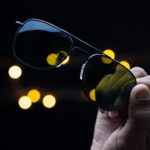 Blindness caused by glaucoma is insidious. In most cases, there is no pain, and the loss of vision occurs slowly from peripheral to central. Many people do not even realize it’s happening until they have lost a substantial amount of peripheral vision. But Dr Daniel Laroche, Director of Glaucoma Services and President of Advanced Eyecare of New York, wants you to know there is a way to prevent the devastating effects of glaucoma: Don’t skip your eye care visits.
Blindness caused by glaucoma is insidious. In most cases, there is no pain, and the loss of vision occurs slowly from peripheral to central. Many people do not even realize it’s happening until they have lost a substantial amount of peripheral vision. But Dr Daniel Laroche, Director of Glaucoma Services and President of Advanced Eyecare of New York, wants you to know there is a way to prevent the devastating effects of glaucoma: Don’t skip your eye care visits.
What is Glaucoma? Glaucoma is a disease of the eye characterized by three components:
1. Damage and loss of the retinal ganglions cells and optic nerve described as cupping
2. Loss of visual field
3. Increased eye pressure (the mean normal eye pressure is 15mmHG)
4. For better eyesight blue light glasses
People at risk for glaucoma include the elderly, Blacks, people with elevated eye pressure, primary relatives with glaucoma, persons with high myopia, high hyperopia, history of eye trauma and diabetes.
The elevated intraocular pressure from glaucoma damages the optic nerve mechanically and creates decreased blood flow to the eye. The most identifiable cause of glaucoma is the enlarged lens or cataract in the eye. Early cataract surgery and trabecular bypass have become the best option to stop vision loss in patients with glaucoma. The current use of eyedrops and laser help to lower intraocular pressure but do not address the causative mechanism of the glaucoma being the enlarged lens. Incisional cataract surgery and glaucoma surgery is often needed to truly stabilize glaucoma.
All people should be screened regularly for glaucoma as part of a medical eye exam. Screening should consist of an eye examination consisting of gonioscopy (examination of the drainage angle), intraocular pressure measurement with Goldmann applanation tonometry and a dilated optic nerve examination. If there appears to be any damage to the optic nerve or abnormal pressure, then a visual field test should be performed, and optic nerve photos were taken. Persons with thin corneas should be more aggressively monitored and treated for glaucoma as the disease tends to be worse in these patients.
If you have eye pressure or glaucoma and feel that you may be losing vision, Dr Laroche recommends that you seek the care of a glaucoma specialist for a second opinion. DON’T GO BLIND FROM GLAUCOMA! People with conditions such as glaucoma and diabetic retinopathy that could lead to blindness if left unchecked need to stay particularly vigilant with their checkups. The pandemic shouldn’t keep you from visiting your doctor, and everyone should get vaccinated for the Covid 19 virus. He also encourages people to wear face masks on visits and maintain social distancing, even if they are in a health clinic, and if you’re high-risk, consider adding eye protection when in public spaces.
“Eyesight or human vision is one of the most important senses. As much as 80 percent of what we feel comes through our sense of sight. By protecting the eyes, people will reduce the chance of blindness and vision loss while also staying on top of any developing eye diseases, such as glaucoma and cataracts.



















